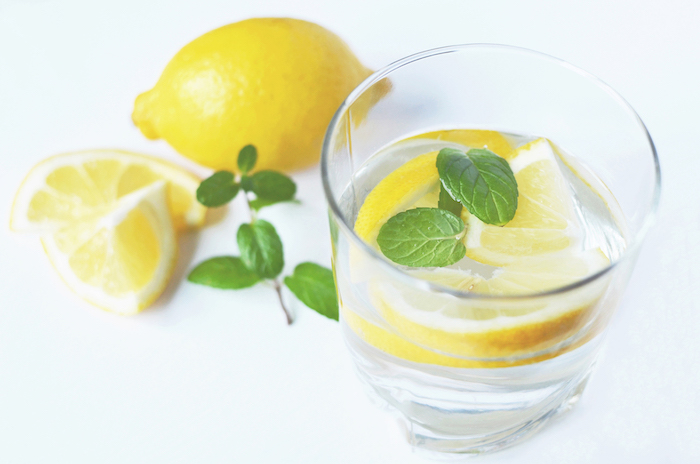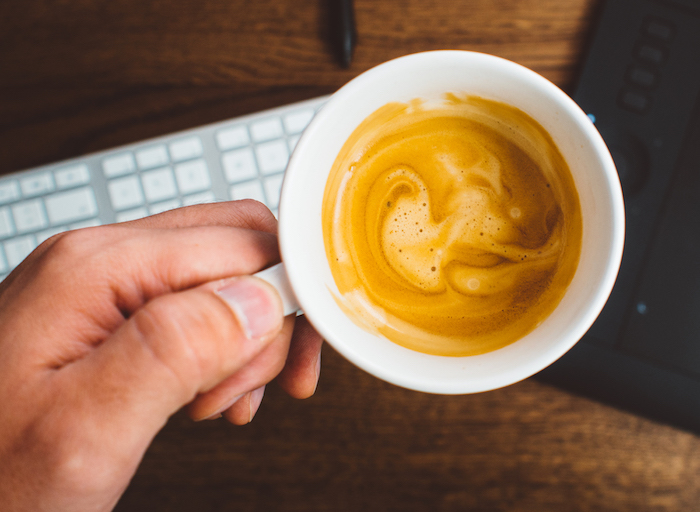Preventative Medicine - Drink Water... But How Much?

Studies on hydration status normally focus on water balance over a 24 hour period. For water balance to be maintained, water intake must equal water losses. So how much water or other fluids will be required for this?
It is difficult to make universal recommendations. People vary widely in their water needs depending on many different factors. These include age, gender, body size and composition, health, level of physical activity, and the temperature and humidity their environment. Even working in a dry air conditioned office can lead to increased water losses that we are not aware of.
"Conflicting points of view on how much fluid (including water) you should drink per day to stay well hydrated"
There are two conflicting points of view on how much fluid (including water) you should drink per day to stay well hydrated and government health agencies and other health authorities have changed their advice over the years.
One view is “to let thirst be your guide”. This is based on defining mild dehydration as starting at 3% loss of body weight. [1] It may work for who those sweat a lot, like athletes or those doing physical activity in hot climates. But it doesn’t seem to work so well for the average person going about their everyday activities, where water loss is smaller and more gradual.

Part of the problem is that humans do not sense thirst until they have lost 1% to 2% of their body mass as water. [2] By that stage, you are already mildly dehydrated. Water has been transferred from within and between the cells of your body and into your blood-stream. In addition, some people get used to ignoring thirst signals. In others, such as the elderly, the thirst mechanism is less effective.
However the brain is 80% water. Recent research has shown that a loss of just 1.6% of body mass impaired cognitive performance and mood in healthy young men. [3] It seems reasonable to assume that a similar minor water loss can trigger a headache attack.
The alternative view on maintaining hydration status is to offer specific guidelines for an “average” non-exercising person in a temperate climate.
It is commonly assumed that about 20% of our water intake comes from food. [4] That leaves about 1700 ml to be made up by water and other beverages. It fits reasonably well with what in the US is referred to as the 8 x 8 rule – in other words drink a total of eight 8 oz glasses per day, which comes to a bit less than 2 litres.
"About 20% of our water intake comes from food. That leaves about 1.7 litres to be made up by water and other beverages"
However what is generally not emphasised by the need to spread fluid intake out evenly throughout the day. It takes time for water to be absorbed from the gut, enter the blood-stream and rehydrate the cells.
Drink too much too quickly and a lot of it will pass straight through. It can also be dangerous under some circumstances, especially when a lot of salts have been lost in sweat and these are not replaced at the same time.
What about drinks containing caffeine, like coffee, tea and some soft drinks, which have a mild diuretic effect?
Water balance studies show that these don’t cause dehydration over a 24 hour period, at least for those used to caffeine. However it is possible that increased urination could lead to temporary water losses from within brain cells and trigger a headache attack. If these losses are later made good they won’t be detected.

In any case headache sufferers need to be cautious about their caffeine intake to avoid headaches triggered by caffeine withdrawal.
Water is certainly a much better choice than sugary commercial fruit juices or soft drinks which can cause your blood glucose levels to spike. These drinks,[5] and even diet soft drinks, [6] have also been linked to progressively putting on body fat over time.
"We suggest you aim to drink roughly 1.5 litres of water evenly spread out over the whole day, and 20% derived from your diet, it will provide a total fluid intake of about 2 litres"
In the absence of any better evidence, we suggest you aim to drink roughly 1.5 litres of water evenly spread out over the whole day, giving a total fluid intake of about 2 litres.
Even if you don’t like water, this is an achievable target, provided you gradually replace some of your other beverages by water.
You could also try filtering tap water (this is a lot cheaper than bottled water) and adding a slice of lemon.
[1] H Valtin (2002). “Drink at least eight glasses of water a day.” Really? Is there scientific evidence for “8 x 8”?” Am J Physiol Regul Integr Comp Physiol, 283(5): R993 –R1004.
[2] LE Armstrong (2012). “Hydration Biomarkers During Daily Life: Recent Advances and Future Potential.” Nutrition Today, 47(4): Supplement 1: S3 - S6.
[3] MS Ganio, LE Armstrong, DJ Casa, BP McDermott, EC Lee, LM Yamamoto, S Marzano, RM Lopez, L Jimenez, L Le Bellego, E Chevillotte and HR Lieberman (2011). “Mild dehydration impairs cognitive performance and mood of men”. Br J Nutr, 106(10): 1535-1543.
[4] E Perrier, S Vergne, A Klein, M Poupin, P Rondeau, L Le Bellego, LE Armstrong, F Lang, J Stookey and I Tack (2013). “Hydration biomarkers in free-living adults with different levels of habitual fluid consumption”. Br J Nutr; 109(9): 1678–1687.
[5] VS Malik, A Pan, WC Willett and FB Hu (2013). “Sugar-sweetened beverages and weight gain in children and adults: a systematic review and meta-analysis”. Am J Clin Nutr; 98(4): 1084-1092.
[6] ML Power and J Schulkin (2013). The Evolution of Obesity, p117-118, JHU Press.
Don’t Let Your Thirst Dictate Your Water Intake

Dehydration may seem a mild problem but even at a moderate level it can cause a lot of distress to an otherwise healthy person - if the problem is severe, it can even become life threatening. Our body is about 70% water and any decrease in this level can lead to many uncomfortable ailments including headache and migraines. So if you suffer from such complaints, it is important to keep your body well hydrated.
What is dehydration?
Dehydration is basically a deficiency of water in our body. In order for our body to function optimally, the balance between electrolytes and water needs to remain normal. When this balance is disrupted, we suffer from a number of physical symptoms that are collectively known as dehydration.
Common symptoms of dehydration
Following are a few of the most striking symptoms of dehydration:
• Headache
• Excessive thirst
• Dryness of mouth
• Dry, wrinkled skin with decreased elasticity
• Fatigue and weakness
• Muscle pain
Relation between dehydration and headache
The reason behind this is not clear but some studies have shown that it is due to the constricted blood vessels in the head that are trying to regulate the fluid levels and conserve water. This creates a deficiency of blood supply and therefore oxygen to the brain, creating a headache.
Dehydration can cause headaches and even trigger a migraine attack. The amount of pain may vary from person to person. It can be felt either in the front or back of the head or only on one side. There are some people who feel it throughout the entire head, mimicking a tension headache. A common symptom of a dehydration headache is increased pain with any head movement or walking.
Treating a dehydration headache
In order to treat a dehydration headache, you simply have to drink some water to rehydrate your body. It is best not to drink too fast. Instead, slowly drink 2-4 glasses of water and your headache will subside within a couple of hours. In some cases when you are unable to consume food or if a child is dehydrated, drink fluids that contain electrolytes such as a sports drink.
It is also important to rehydrate without sweating otherwise you will continue to lose fluids. So move to a cool environment or find some shade.
If the problem persists, it is best to consult a doctor who will prescribe I.V. fluids for faster recovery from dehydration.
Preventative measures
Drinking enough water throughout the day is the best way to prevent dehydration headaches. Although 6 - 8 glasses of water (1.5 - 2 litres) is considered ideal, this will vary according to your weight, physical activity and whether you live in a warmer climate or higher altitude.
Many people fall in the trap of never drinking enough water because they never feel thirsty - don’t let your thirst dictate your water intake. It is recommended to drink enough water so your urine is clear and a pale yellow colour.
Refrain from alcohol and excessive caffeine, because they act as a diuretic – leading to dehydration. Fruits and vegetables are great for health and energy but they are not a substitute for drinking water.
Image: spongysponge
________________________
Pablo Tymoszuk is a soft tissue therapist specialising in remedial, myofascial and dry needling techniques. He also acts as an ergonomic specialist and wellness consultant which has motivated him to co-author the eBook Stop Headaches Naturally.
Together with Dr Margaret Scarlett they present a range of strategies for stopping headaches and migraines without drugs. All strategies are organized in a systematic manner and backed up by references to the scientific literature.





